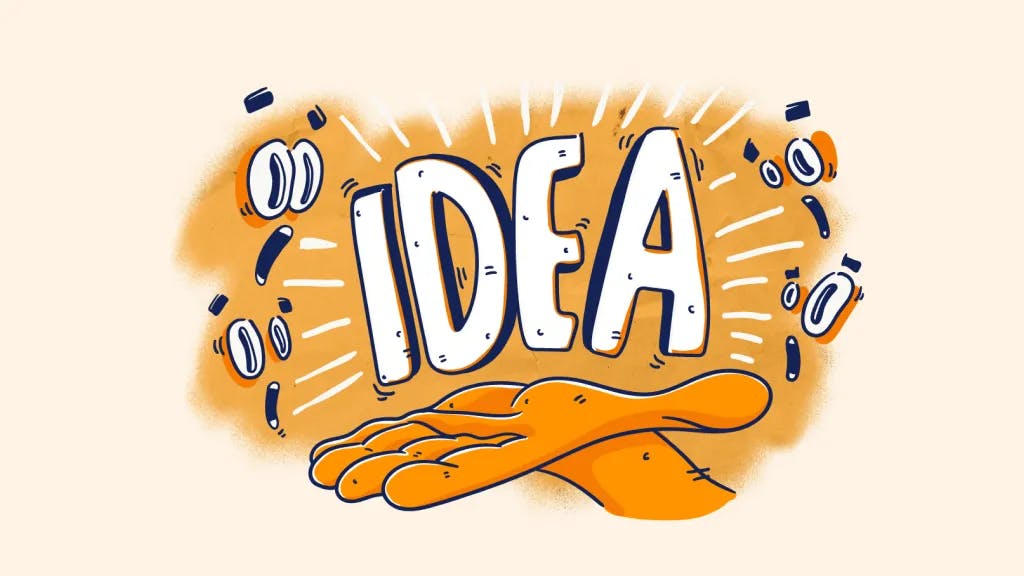How do I effectively communicate my idea?
It's the beginning of the week, and you've thought of an incredible idea that would greatly benefit your organization. So, you decide to share it with some colleagues. You've prepared your materials and are now ready to present that idea at your weekly team meeting.
But then something awful happens. As you share your idea, you get a less than enthusiastic response from your team. It seems that they couldn't fully understand what you had in mind. Follow-up questions don't seem to help clarify much, and your idea gets dropped.
Ultimately, you figured out the central problem: you could not communicate your idea effectively.
Ideas are an integral part of the innovation process, which needs to be incredibly collaborative. That means you will constantly deal with people; we all know how complicated that can get. That's why communication is crucial to ensuring that the idea-sharing process runs smoothly.
Crystal-clear communication is critical in increasing your chances of getting meaningful feedback and giving your ideas a chance to be realized.
Here are some tips on how you can best communicate your ideas.
CONSIDER YOUR AUDIENCE
It's essential to consider your audience in any type of communication. Who will you be presenting your ideas to?
If your audience is made of individuals familiar with your field of work, you can probably avoid including more technical jargon in your message. They speak your language, they share your context, and they will understand what you mean.
However, if you're presenting your idea to a group of people unfamiliar with the context, using inaccessible jargon is very detrimental to your mission. You would then need to simplify your message and make it easy to understand. That's where the next point comes into play.
COMMUNICATE CLEARLY
When submitting an idea, it is essential to communicate it as clearly as possible.
Does that mean that your ideas shouldn't be complex? Of course not. It means that the way you communicate that complexity needs to be such that others will grasp and understand what you are proposing.
Let's face it. Sometimes we get so excited about an idea that we forget that others may not share our background or our context. That's why putting ourselves in the audience's shoes is essential.
Here's a tip for you: if you feel like your idea is getting too jumbled up in complexity, try writing it down as if you're explaining it to a child and then go from there. Forcing yourself to communicate in the simplest way possible can often help eliminate bottlenecks to effective communication.
COMMUNICATE HONESTLY
The idea-generating process can be messy, and the fact that we don't have everything figured out about an idea often keeps us from sharing it. Don't let that stop you.
Of course, at the very least, you must be able to express the potential you see in an idea and its goals. But sharing any difficulties you may have in putting it together is ok. Let your audience know where you need help. Don't be afraid to ask for feedback. Be specific about the feedback that you'd like to get. Sometimes we don't consider it, but the fastest way to find some help is to ask for it.
Now that you have some general guidelines that you can use to communicate your ideas best, here are some additional tips you can use as a reference point when getting ready to do so.
Ask yourself: what value are you trying to create with your idea? Articulate your goals with clear language that lets other members understand what you are trying to do.
If your idea is to improve something, provide some context on how things are being addressed today, the limitations of the current approach, and your idea's potential to improve that situation. This lets everyone understand how your idea will take things to the next level.
Another set of questions to ask yourself: who would be most interested in seeing my idea implemented? Why? What would be the positive impact for them? How will their lives or needs be improved?
If someone challenges your idea and you disagree, do your best to understand why. Then you can either change your idea or explain why you think they might be missing something.
If there are certain aspects of your idea that you know could be improved on, be sure to state that. This will help your team quickly determine where they can direct their assistance.
Remember that, sometimes, what we think we are communicating is not what it is. That's why asking someone to review your idea and ensure they grasp it before you share it with your team is helpful. Doing so will help you improve your communication and ensure that everyone will understand you.
If you're looking for a great way to manage ideas in your company, InnovationCast is the innovation management software that offers you practical idea management tools. It will help you quickly gather ideas, select the best ones, and take them to the finish line.
Click here to learn more, and give us a shout if you're interested. If you're ready to speak to us, request a demo today.

